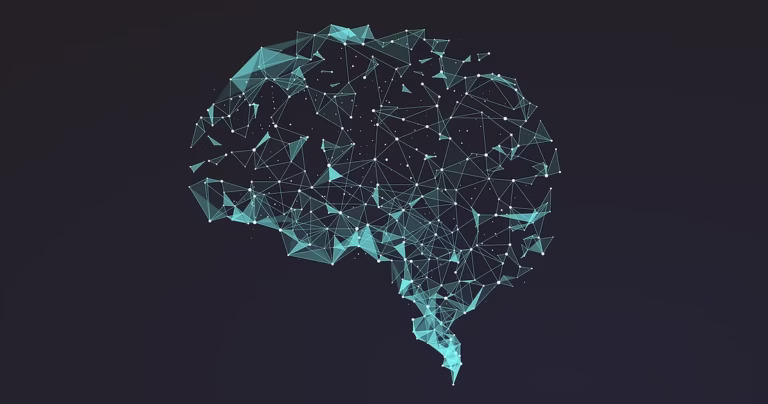Introduction: The Machine Learning Revolution in Everyday Life
Imagine waking up in the morning. Your alarm clock has synced itself with traffic updates to wake you up at the perfect time, ensuring you won’t be late for work. Your favorite coffee shop app has already prepared your usual order for pickup, and on your drive to work, your navigation app reroutes you to avoid a traffic jam. By the time you sit at your desk, your emails have been filtered, prioritized, and partially drafted by an AI assistant. All of this is now possible thanks to the growing role of machine learning in software engineering. This reflects how machine learning is becoming inseparable from software engineering.
All of these conveniences, which we often take for granted, are powered by machine learning (ML).
Machine learning is no longer confined to futuristic predictions—it’s a reality shaping nearly every aspect of our daily lives. ML governs the apps we use, the services we rely on, and increasingly, the products we build. Companies from e-commerce giants like Amazon to healthcare providers like Mayo Clinic use ML to revolutionize their offerings and drive innovation.
But ML is not just the secret sauce for consumer-facing products. It is the engine behind better business decisions, process optimization, and unprecedented insights in industries ranging from agriculture to aerospace. The algorithms powering these advancements are increasingly embedded into the core of software systems, meaning ML has become an integral part of modern software engineering.
For software engineers, this shift represents both a challenge and an opportunity. Traditional software development relied on explicit instructions—rules hardcoded by engineers. Machine learning flips this on its head: the systems write the rules themselves by analyzing vast amounts of data. As a result, engineers who understand ML aren’t just programmers; they’re enablers of intelligent, adaptive systems that form the backbone of our daily lives.
The implication is clear: machine learning will soon be as essential to software engineering as object-oriented programming or algorithms. By embracing ML, software engineers can stay ahead of the curve, building systems that learn, adapt, and innovate alongside the rapidly changing world.
The Role of Machine Learning in Shaping the Software Industry
Machine learning isn’t just a buzzword—it’s the driving force behind the most transformative technologies of our time. From improving user experiences to redefining industry practices, ML is changing the game across the software industry. Here’s how:
1. Intelligent Applications Are the New Norm
The modern user expects applications to be “smart.” Consider the apps we interact with daily:
Spotify curates playlists tailored to your mood and preferences.
Netflix predicts which movies or shows you’ll love.
Google Photos organizes your memories using facial recognition and object detection.
These systems aren’t just software; they’re intelligent experiences. To meet user expectations, software engineers must learn to design and implement machine learning models.
2. Revolutionizing Industries
Machine learning is redefining how industries operate:
Healthcare: ML-powered diagnostic tools like DeepMind’s AlphaFold can predict protein structures with unprecedented accuracy, revolutionizing drug discovery and treatment planning.
Finance: Algorithms analyze trading patterns in real-time, flagging fraud and optimizing investment strategies.
Retail: Predictive analytics helps companies manage inventory, personalize marketing, and optimize supply chains.
For engineers, this means that understanding ML is no longer industry-specific. Whether you’re working on an e-commerce site, a fintech platform, or a healthcare app, you’ll likely need to integrate ML at some level.
3. Automation: More Than a Buzzword
Software engineers are no strangers to automation, but ML takes it to a whole new level. Instead of automating repetitive tasks through predefined rules, ML creates systems that can:
Adapt: Adjust performance dynamically based on real-time data.
Predict: Forecast trends and outcomes before they occur.
Optimize: Improve efficiency with minimal human intervention.
For example, ML algorithms are being used in software development tools to identify bugs, suggest code optimizations, and even write code. GitHub’s Copilot, powered by OpenAI’s Codex, is a perfect example of how ML can augment traditional engineering workflows.
4. ML Is Changing the Engineering Job Market
In the past, machine learning was considered a specialized skill, reserved for data scientists or researchers. Today, it’s increasingly seen as a baseline requirement for software engineers. Why? Because companies are looking for developers who can:
Build scalable systems that integrate ML models.
Collaborate effectively with data scientists to bring machine learning solutions to life.
Optimize existing systems with ML-driven insights.
The lines between traditional roles—software engineer, data scientist, ML engineer—are blurring. Engineers who can navigate this hybrid space will be in the highest demand.
Why All Software Engineers Need Machine Learning Skills
Machine learning is no longer an isolated discipline. Its impact is being felt across all facets of software development, and its integration into daily engineering tasks is inevitable. Whether you’re working on a mobile app, a backend system, or a web platform, understanding ML can enhance your work in profound ways. Here’s why:
1. ML Supercharges Core Engineering Tasks
Software engineering is rooted in problem-solving: optimizing performance, reducing bugs, and creating user-friendly systems. ML takes these efforts to a whole new level by enabling:
Smart Debugging: Imagine a tool that not only flags potential bugs but predicts where errors are likely to occur based on historical data. ML algorithms can analyze codebases to identify problematic patterns, helping engineers address issues faster.
Automated Testing: Traditional software testing involves running pre-written test cases. ML can generate dynamic, intelligent tests that adapt based on system behavior, significantly improving testing efficiency and accuracy.
Enhanced Security: ML-based tools can analyze massive volumes of data to detect anomalies and potential vulnerabilities, making systems more resilient to cyberattacks.
For engineers, this means fewer repetitive tasks and more focus on creative, high-level problem-solving.
2. Intelligent Systems Are Becoming the Default
Gone are the days when software merely followed a set of predefined rules. Today’s systems need to:
Personalize user experiences.
Adapt to changing inputs and environments.
Predict outcomes and trends before they occur.
Consider some real-world examples:
E-commerce platforms use ML to recommend products tailored to individual users, driving engagement and sales.
Chatbots and virtual assistants powered by natural language processing help users navigate systems seamlessly.
Logistics systems optimize delivery routes dynamically, saving time and reducing costs.
These intelligent features are now expected by users and businesses alike. Software engineers who lack ML knowledge will struggle to meet these expectations.
3. ML Bridges the Gap Between Data Science and Engineering
Traditional software engineering and data science have often been seen as separate domains. However, ML sits at the intersection of the two, requiring engineers to:
Handle Data: Engineers increasingly need to preprocess and clean data for ML models. Understanding how data quality affects outcomes is crucial.
Work with ML Models: Engineers must deploy, integrate, and optimize ML models within larger systems.
Collaborate with Data Scientists: As organizations move toward data-driven decision-making, engineers are expected to work closely with data scientists to bring ML solutions to production.
This convergence has blurred the lines between roles, creating demand for engineers who can operate in both spaces.
4. ML Creates Opportunities for Innovation
One of the most exciting aspects of ML is its potential for creating entirely new products and services. For example:
In healthcare, ML algorithms can analyze patient data to recommend personalized treatments, enabling preventative care.
In sustainability, ML models optimize energy usage in smart homes and cities.
In entertainment, ML generates content recommendations and even creates original content, such as AI-composed music or scripts.
Engineers who understand ML can be at the forefront of these innovations, leading projects that push the boundaries of what technology can achieve.
5. Companies Expect Engineers to Have ML Knowledge
The job market reflects this shift in expectations. Companies are embedding ML-related skills into software engineering job descriptions, often requiring:
Familiarity with ML libraries like TensorFlow, PyTorch, or scikit-learn.
An understanding of basic ML concepts like supervised learning, neural networks, and overfitting.
The ability to collaborate with cross-functional teams to implement ML-driven features.
As more businesses adopt ML to stay competitive, engineers with ML skills will have access to better job opportunities, higher salaries, and more impactful roles.
6. ML Futureproofs Your Career
The tech industry evolves quickly, and staying relevant requires continuous learning. Machine learning represents not just a trend but a long-term transformation of how software is built and maintained. By acquiring ML skills, software engineers can:
Stay ahead of automation: As more coding tasks are automated by AI, engineers with ML expertise will design and oversee these systems.
Transition into leadership roles: Engineers who understand ML will lead teams, mentor peers, and make high-level decisions about integrating intelligent technologies.
Remain adaptable: ML knowledge equips engineers to pivot into related fields, such as data science, AI research, or product management.
Breaking Down Machine Learning: What Engineers Need to Know
The good news? You don’t need a PhD to incorporate ML into your skill set. Here’s what every software engineer should learn:
Foundational Concepts:
Supervised and unsupervised learning.
Key metrics like accuracy, precision, recall, and F1-score.
Overfitting vs. underfitting and how to handle them.
Tools and Frameworks:
Popular libraries like TensorFlow, PyTorch, and scikit-learn simplify ML development.
Platforms like AWS SageMaker and Google AI make it easier to deploy ML models at scale.
Practical Skills:
Data preprocessing: cleaning and preparing data for ML algorithms.
Feature engineering: identifying and creating the most informative data points.
Model evaluation: understanding how to test and tune ML models effectively.
By mastering these skills, engineers can confidently integrate ML into their projects.
Steps to Transition from Traditional Software Engineering to ML-Powered Roles
Transitioning to ML doesn’t require starting from scratch. Here’s a roadmap to help engineers make the leap:
Learn the Basics of ML and Statistics:Brush up on linear algebra, probability, and optimization techniques. Free resources like Khan Academy and YouTube tutorials are great starting points.
Work on Data-Centric Projects:Start small with tasks like cleaning datasets or visualizing trends. Platforms like Kaggle offer beginner-friendly challenges.
Get Hands-On with ML Frameworks:Experiment with building and training simple models using TensorFlow or PyTorch. Tutorials and online courses (like Coursera or Udemy) can guide you.
Integrate ML into Existing Projects:Use ML to enhance features in the projects you’re already working on. For example, you might add a recommendation system to an e-commerce platform.
Showcase Your Work:Document your ML projects in a portfolio to demonstrate your skills to employers.
Common Machine Learning Interview Topics for Software Engineers
If you’re transitioning to a role that involves ML, here’s what to expect during interviews:
Conceptual Questions:
“Explain the difference between supervised and unsupervised learning.”
“What is overfitting, and how do you prevent it?”
Coding Exercises:
Writing code to implement basic ML algorithms.
Debugging existing ML models.
System Design Questions:
Designing scalable architectures to serve ML models.
Incorporating real-time feedback loops for model improvement.
Preparing for these topics requires a mix of theoretical study and hands-on practice.
Futureproofing Your Career: Why the Best Software Engineers Are Adopting ML Skills Now
The software engineering landscape is evolving at breakneck speed, and ML is leading the charge. In the near future:
Routine software development tasks will be automated by ML-powered tools.
Engineers will be expected to build systems that not only solve problems but learn and adapt over time.
Adopting ML skills now ensures you’ll be part of this shift rather than left behind. As industries across the board adopt ML, the demand for engineers who can bridge the gap between traditional software development and machine learning will only grow.
How InterviewNode Helps Engineers Transition into ML Roles
At InterviewNode, we understand the challenges engineers face when transitioning to ML-focused roles. That’s why we’ve tailored our services to meet your needs:
Mock Interviews:Practice ML-specific interviews with industry experts from top-tier companies.
Customized Learning Paths:Receive a study plan tailored to your experience and target job roles.
Real-World Scenarios:Tackle case studies and problem-solving exercises modeled after real-world challenges.
Community Support:Join a network of engineers who’ve successfully transitioned into ML roles.
With InterviewNode, you’ll have the tools, guidance, and confidence to land your dream job in the ML-powered future of software engineering.
Conclusion: Embracing a Machine Learning Future as a Software Engineer
Machine learning is no longer a niche field—it’s the backbone of modern software engineering. Whether you’re a backend developer or a mobile app specialist, incorporating ML into your skill set will be crucial for staying relevant in the tech industry.
The good news? You don’t have to navigate this transition alone. With resources like InterviewNode, you can build the skills you need, ace ML interviews, and secure your place in the future of software engineering.






